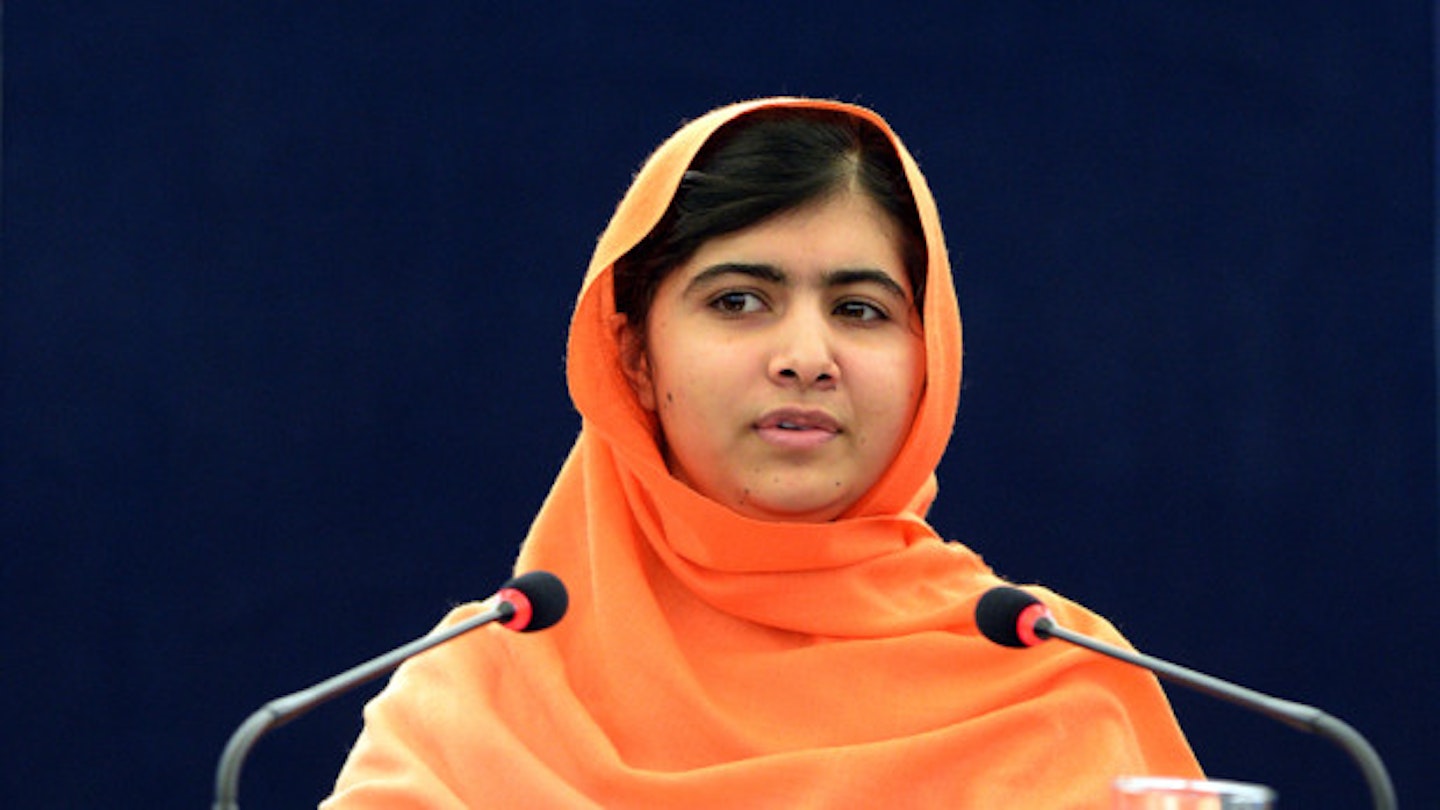Women’s and girls’ rights campaigner Malala Yousafzai has urged the Nigerian government to ‘take action’ to find the 234 schoolgirls who were kidnapped from their school by men alleged to be part of terrorist group Boko Haram.
The girls, aged between 16 and 18 and mostly from Christian families, were taken at gunpoint from their boarding school in Chibok, in the north east of the country, on 14 April and driven into the Sambisa forest, a Boko Haram stronghold. They’re still yet to be found.
One girl who managed to escape told a harrowing story of how ‘each time we got to a village, [the kidnappers] stopped and started shooting and killing people and burning their houses.’
There has since been a shocking lack of effort on behalf of the Nigerian government to solve this problem – president Goodluck Jonathan refusing to comment on it, police failing to investigate the incident and families forced to go into the Sambisa to try to get their own children back.
There has also been very little reported about this inaction. In fact, reports are so small and varied, the BBC are reporting 187 girls are missing, whereas The Guardian and The Times are putting the figure at 234 and other news outlets are just rounding it down to 230. What’s four girls, right?
However, Malala’s plea can bring new light to the story and intensify pressure on Nigerian authorities. She told BBC Radio 4: ‘When I heard the news, I was so sad, because it’s totally violent, it’s horrible. I’m feeling very sad for those girls, I don’t know what condition they will be in. The international community should think about these girls because this is a part of our community and if we forget these girls, it’s like we’re forgetting our own sisters, our own people.’
She added: ‘I want to make a request to the government of Nigeria that they should take it [the education of girls] seriously, that they should take action, because in the end we will lose a whole generation.’
And she really does mean a whole generation. Boko Haram’s name means ‘Western education is sinful’ and regardless of whether they are directly responsible for the kidnapping of the girls, they’re part of a wider movement across jihadist groups – including Al Qaeda and The Taliban – to quash women’s education as they see it as a threat to their desires for a ‘pure’ Sharia state.
As outlined by The Times’s Janice Turner in this chilling, graphic piece, the kidnapping of the girls – inevitably, so they can face a life of servitude to male soldiers – is just another example of the jihadist war on women’s education, something which Malala knows all too well about.
In 2012, she was shot in the head by members of the Taliban in the Swat Valley, Pakistan. Her crime? Daring to go to school. Since her recovery, she has campaigned for the rights of women and girls to education and has twice made it onto *Time *magazine’s 100 most influential list.
‘It’s every girl’s right to go to school to get an education and it’s the duty of the government to protect them, provide them full safety and to make sure that these girls are safe while they go to school.’
Though the Nigerian government might be slow to respond to the incident because it might rupture a sensitive situation, it simply isn’t fair that nothing is being done about the girls’ disappearance.
Follow Sophie on Twitter @sophwilkinson
Picture: Getty
This article originally appeared on The Debrief.
